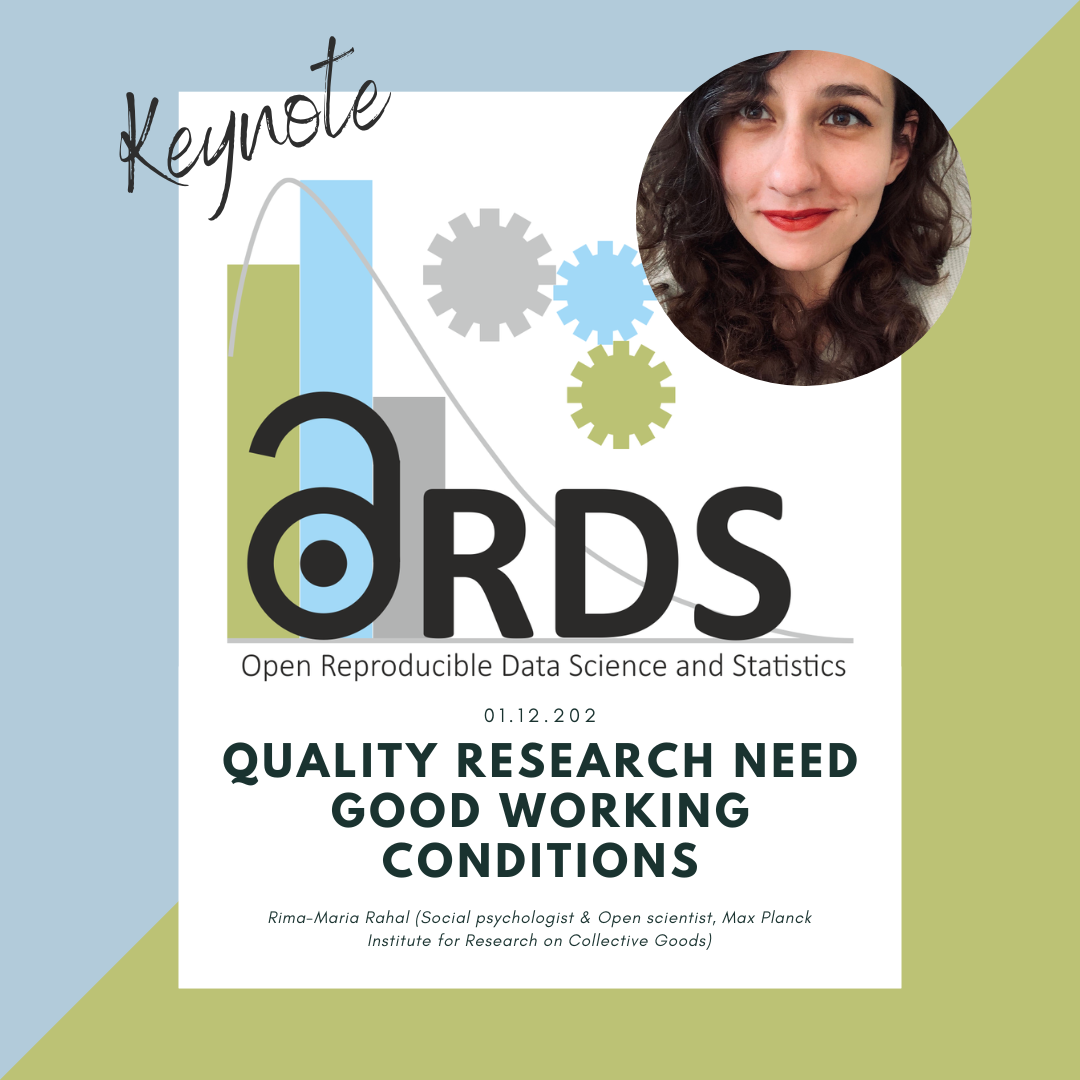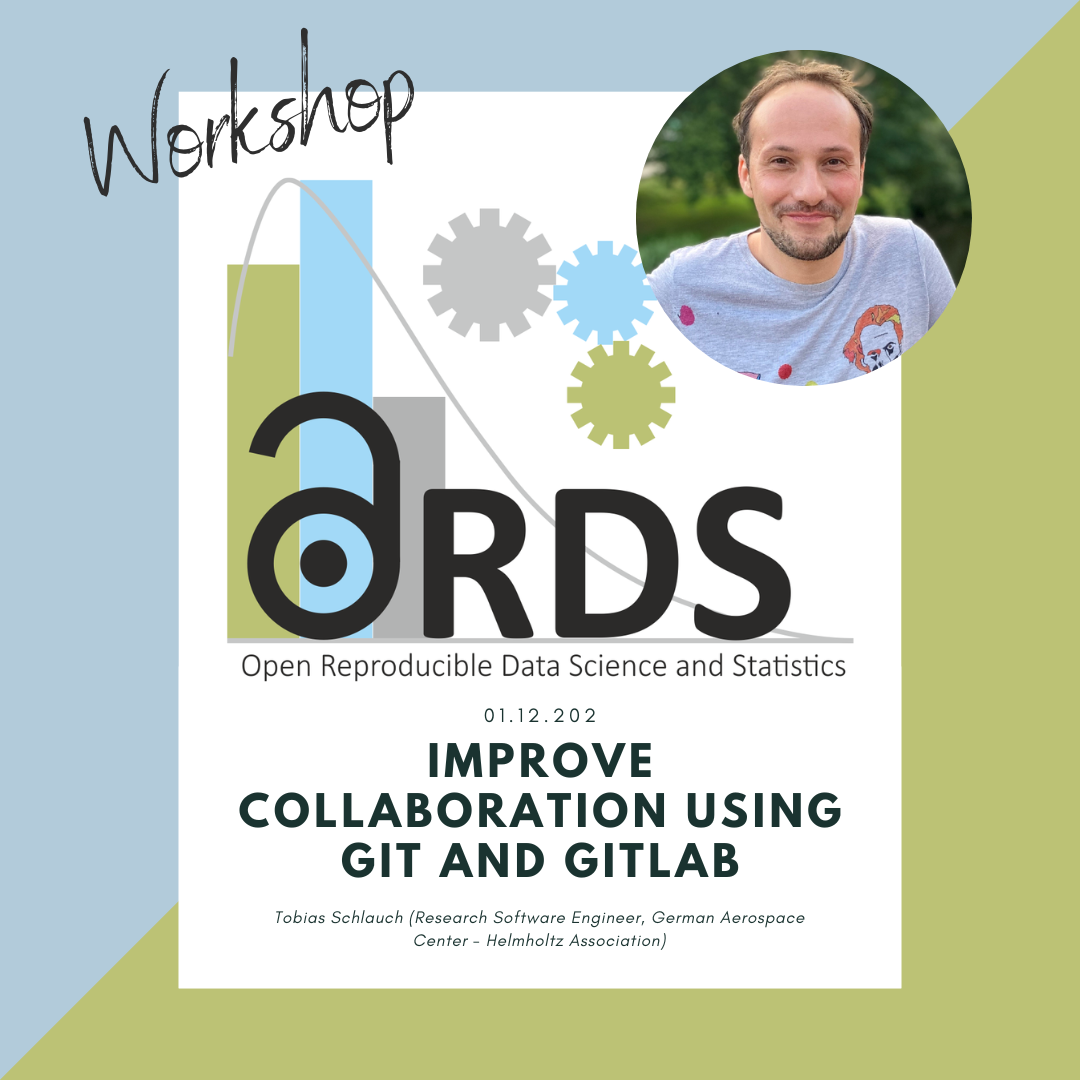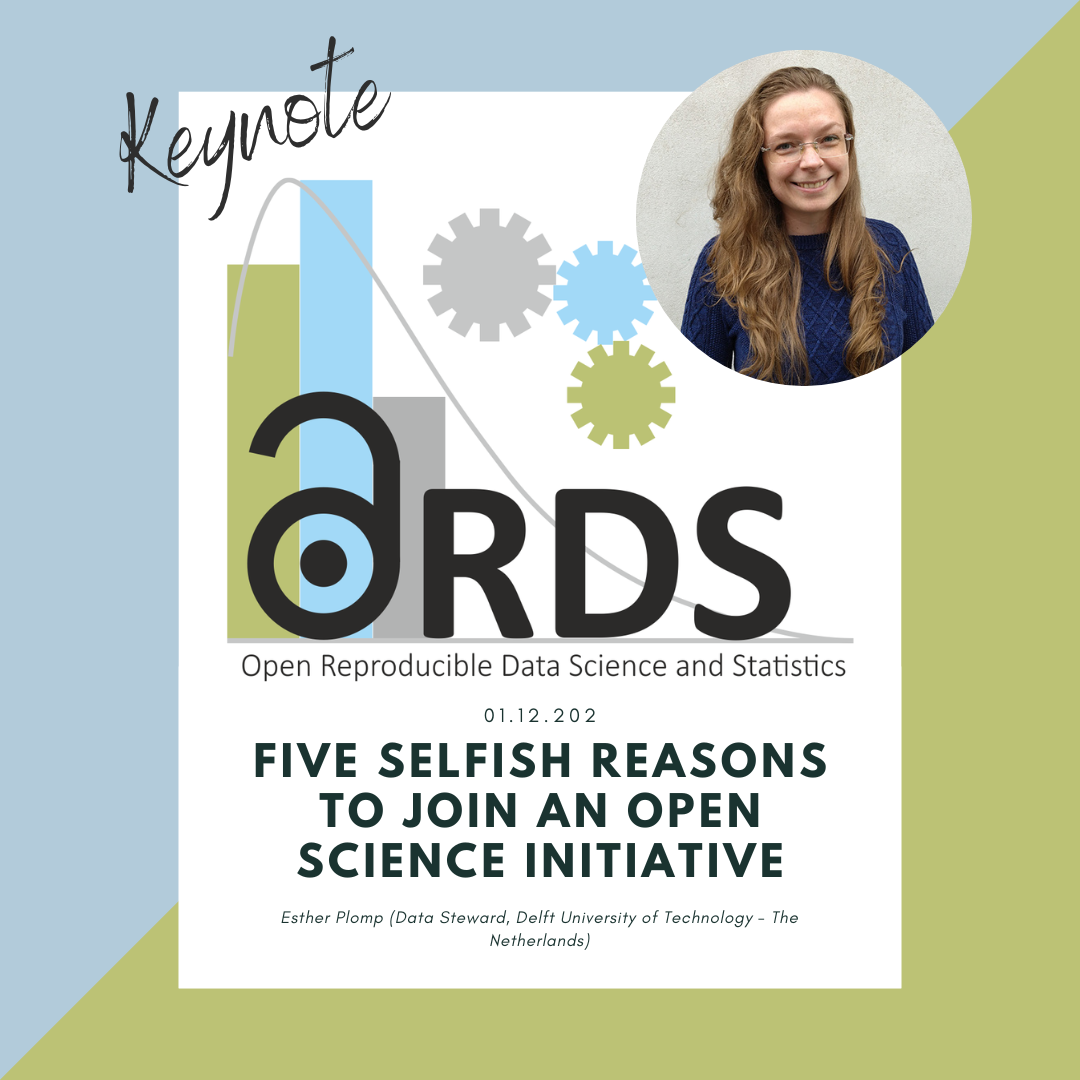ORDS-MV: 3rd birthday on 01-December 2023
We have great news: ORDS-MV is celebrating it’s 3rd anniversary with you!
Register soon in order to get one of the limited seats and spread the word about open and reproducible data science and statistics:
Date: 01-December-2023 from 09:00am to 5:00pm
Location: University of Rostock, Main Building, Universitätsplatz 1, 18055 Rostock; Room 104
Registration via e-Mail: stat-consult@fbn-dummerstorf.de
Program
| Time | Description |
|---|---|
| 9:00 | Welcome Prof. Dr. Elizabeth Prommer, Rector of the University of Rostock |
| 9:15 | Keynote: Quality research need good working conditions Rima-Maria Rahal, Social psychologist & Open scientist, Max Planck Institute for Research on Collective Goods |
| 10:00 | Break |
| 10:15 | Hands-on workshop: Improve collaboration using Git and Gitlab – Part 1 Tobias Schlauch, Research Software Engineer, German Aerospace Center - Helmholtz Association |
| 12:15 | Lunch Break |
| 13:00 | Keynote: Five selfish reasons to join an open science initiative Esther Plomp, Data Steward, Delft University of Technology - The Netherlands |
| 13:30 | How can we improve networking in Mecklenburg-Vorpommern all participants |
| 14:30 | Hands-on workshop: Improve collaboration using Git and Gitlab – Part 2 Tobias Schlauch, Research Software Engineer, German Aerospace Center - Helmholtz Association |
| 16:30 | Farewell |
Keynote: Quality research need good working conditions
The lack of permanent positions and large proportion of (temporary, third-party funded) fixed-term positions in academia leads to high turnover, especially affecting early and mid-career researchers. At the same time, selection procedures for allocating the rare permanent employment contracts are problematic, because they often incentivize the quantity (and not the quality) of individual researchers’ output. Both conditions together have created an academic environment in which research quality may suffer. We argue that academic systems prioritizing non-permanent employment to foster innovation and continuous attraction of new talent create a precarious employment structure that also has detrimental effects for good research practice, for the robustness of the generated findings, and ultimately for gaining knowledge and advancing scientific discovery. We discuss five ways in which a higher proportion of permanent positions can contribute to putting research quality and robustness back at the center of research endeavors: by (i) enabling more holistic research agendas, (ii) fostering openness and transparency in research, (iii) advancing team research, and by dedicating more resources to (iv) teaching open scholarship skills and (v) researchers’ civic engagement.

Hands-on workshop: Improve collaboration using Git and Gitlab
Join us for an exciting hands-on Git/GitLab workshop! You will dive into the world of version control, Git, and collaboration using GitLab. Whether you’re a beginner or an experienced coder, this event is designed to enhance your programming skills and collaboration capabilities. This workshop is perfect for data scientists and scientific programmers from all research areas.
What to expect:
- How to participate in a GitLab project.
- Using a access token to authenticate.
- Exercises to practice Git operations.
- Collaboration and version control best practices.

Keynote: Five selfish reasons to join an open science initiative
Open Science initiatives promote the adoption of Open Science principles, contributing to the advancement of scientific knowledge for the benefit of society. Next to these broader advantages, joining an Open Science initiative also benefits you personally! This talk highlights five self-serving reasons on why joining an Open Science initiative will boost your research and/or career.
